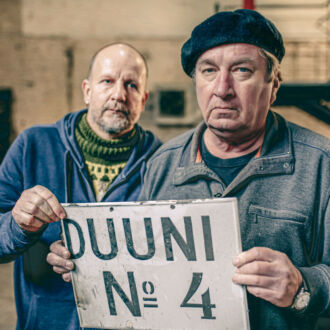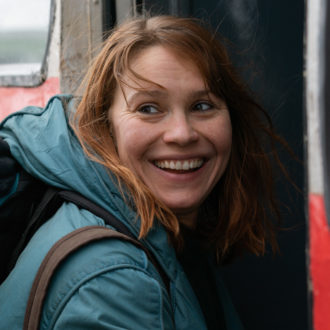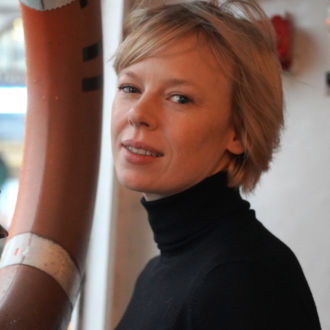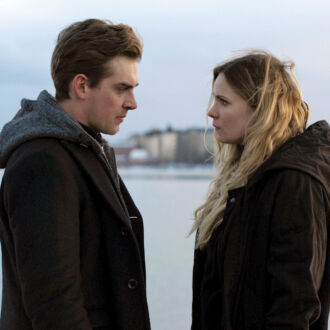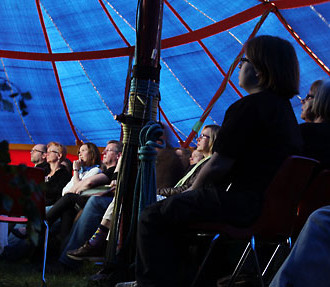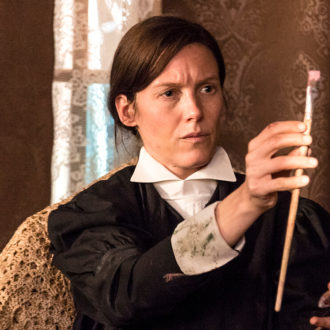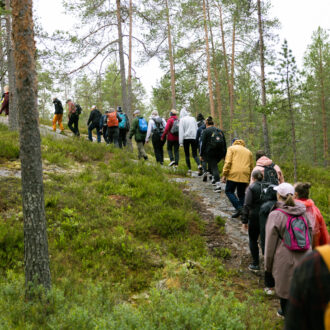At the centre of Aki Kaurismäki’s Fallen Leaves is the beating heart of humanity. Earnest souls search for meaning and connection in a world that threatens to wear them down.
From pathos to a few choice laugh-out-loud moments, it is a story about two regular Helsinkians whose small-scale lives take on epic emotional proportions. The New York Times calls it “a tender, beautifully directed love story.”
It won the Jury Prize at the 2023 Cannes Film Festival, and it’s the Finnish entry for the Best International Feature Film award in the Academy Awards. Just weeks after the Finnish premiere, it was on its way to becoming the most-watched domestic film of the year in Finland, and had already sped past Kaurismäki’s previous all-time best in terms of domestic viewer numbers (Cannes Grand Prix winner The Man without a Past, from 2002).
Social ladder
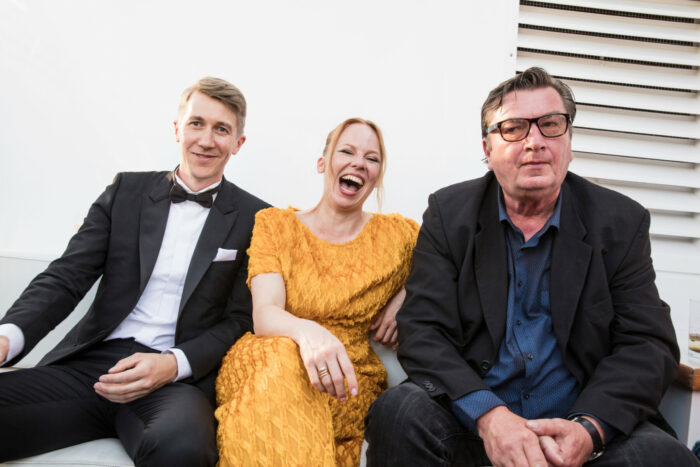
From left: Actors Jussi Vatanen and Alma Pöysti and director Aki Kaurismäki came to Cannes to attend the film festival.Photo: Lasse Lecklin/B-Plan
Labour is significant in Fallen Leaves, which forms part four of Kaurismäki’s Proletariat Trilogy. Releasing a fourth instalment of a trilogy is typical of Kaurismäki’s humour – unless you’re paying attention, you’ll miss the joke.
Ansa (Alma Pöysti), a supermarket clerk on a zero-hour contract, gets fired for taking food that is past its sell-by date. Holappa (Jussi Vatanen) is an industrial worker who is injured because of his boss’s stingy unwillingness to buy new, safer equipment. The fact that Holappa has been drinking on the job only makes things worse for him.
The trilogy’s other films, Shadows in Paradise (1986), Ariel (1988) and The Match Factory Girl (1990), also feature labourers. Their central characters are a garbage collector, a miner who has recently lost his job, and a match factory worker. They bend and almost break in a society portrayed as dreary and harmful for people who, like these characters, find themselves at the wrong end of the social ladder.
Heroic struggles
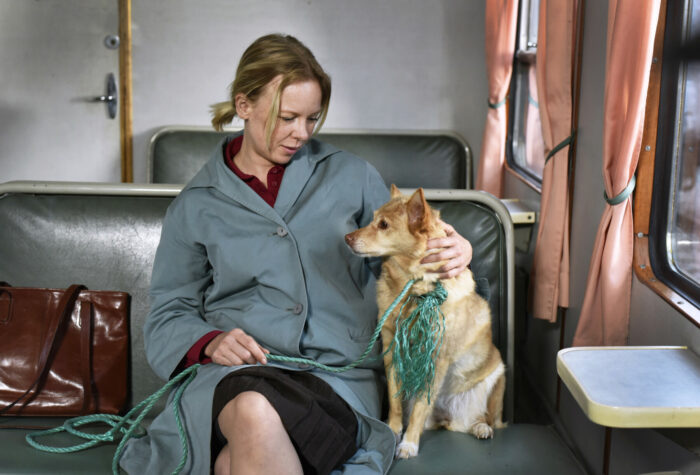
Ansa adopts a stray dog that is hanging around the factory where she works, and calls it Chaplin.Photo: Malla Hukkanen/Sputnik
Kaurismäki’s workers struggle heroically, despite the societal mechanisms that conspire to thwart them.
When Ansa must empty her bag – including a “stolen” sandwich – in front of the store manager and the bear-like security guard who reported her, two older coworkers stand with her in a show of solidarity. One of them reveals that she, too, has taken something, and the other one quits outright.
It’s nearly impossible not to sympathise with them. The trio march off, leaving the job with their heads held high, while the male supervisors’ resolve visibly ebbs away.
Empathy play
Watch the trailer for Aki Kaurismäki’s film Fallen Leaves.
The firing episode resonates with many of Kaurismäki’s other films. Brutal management guided by profits and an illogical rulebook may be foreign to some of us, but the collateral damage to humanity is unmistakeable.
At home with no paycheque, Ansa turns off the radio, then the microwave, and eventually just flips the switch of the distribution box. The scene emphasises the dependence of life on work – here, work translates to the ability to pay the electric bill.
This is melodrama, Kaurismäki style – when done right, it yanks us in by the taut lines of our empathy. Contemporary Helsinki as shown on the screen may appear unfamiliar, but the story is compelling.
Human story
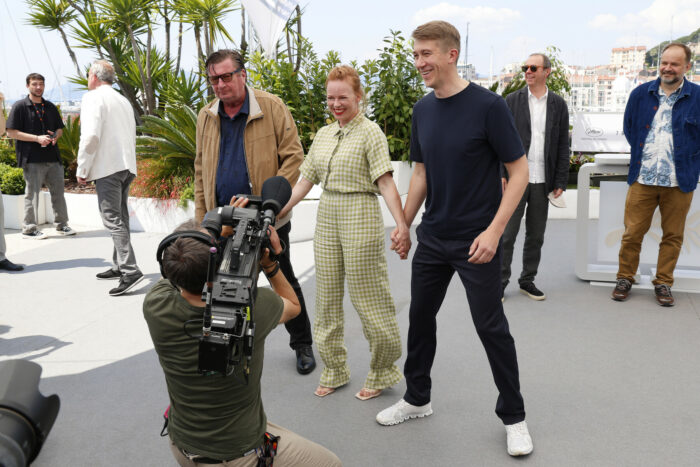
From right: Actors Jussi Vatanen and Alma Pöysti smile for the cameras at the Cannes Film Festival, as does director Aki Kaurismäki – kind of.Photo: Kurt Krieger/Sputnik
History is present in Fallen Leaves. Ansa listens to radio reports from the war in Ukraine on her beloved transistor radio. She expresses little outward emotion, even as the broadcast describes civilian deaths.
Moviegoers also listen. Kaurismäki has said that, someday in the future, when today’s atrocities have been forgotten, people will still be watching old films, and that snippets of news in films such as Fallen Leaves will stand as testaments to human history.
Fleeting glances
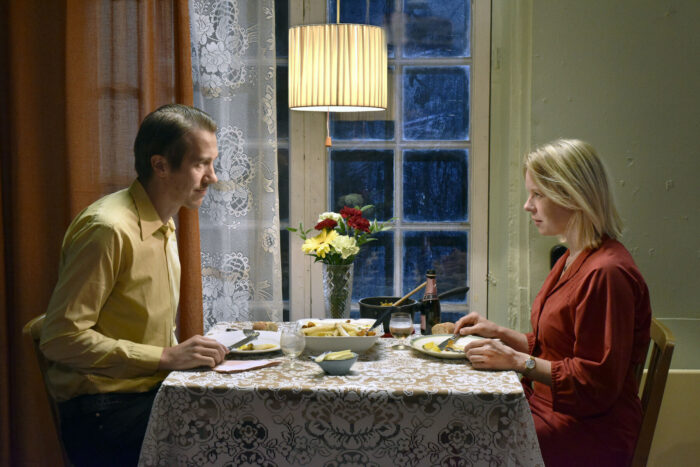
Holappa and Ansa make conversation over dinner at Ansa’s place.Photo: Malla Hukkanen/Sputnik
Music periodically creates interludes and atmosphere in the film. The evening Ansa and Holappa first lay eyes on each other at a karaoke bar, they aren’t singing, but Kaurismäki gives ample space to performances by two others.
Holappa’s friend Huotari (Janne Hyytiäinen) sings an out-of-tune version of “Syyspihlajan alla” (Under the Autumn Rowan Tree). Later, Mika Nikander, a bass who has performed with the Finnish National Opera and appears in the film credits as “karaoke singer,” sings Schubert’s “Serenade.”
Ansa and Holappa’s unspoken expressions of desire and hope, as well as of melancholy and fear, are better represented in the songs – and in the characters’ fleeting glances – than in any amount of dialogue. And, true to form, Kaurismäki keeps dialogue to a minimum.
A pause to perceive
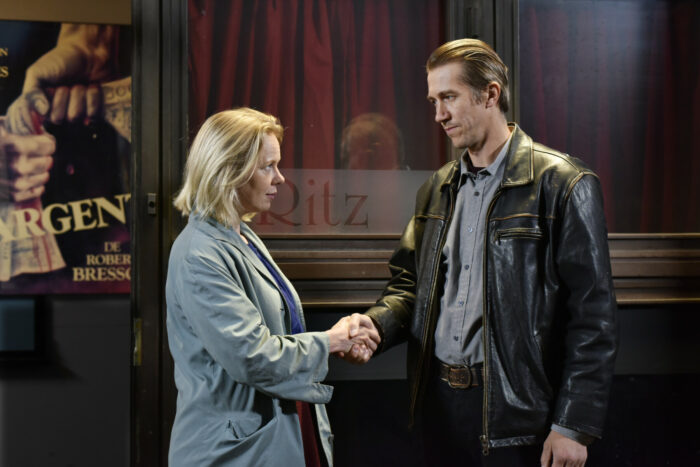
After going to the movies together, Ansa and Holappa are unsure whether to finish the evening by hugging, kissing or just shaking hands.Photo: Malla Hukkanen/Sputnik
Labour may be exploitative, and luck may appear to be working against Kaurismäki’s characters, but beauty manages to stand out as the central message of Fallen Leaves, as in many of his other films. You may have to stop speaking and pause to perceive it, but it’s there – in the movie, and in real life.
It’s classic Kaurismäki. His method of portraying humanity still works, helped along by a soul-stirring soundtrack. If you can’t cry, it’s good to laugh.
By Eric Bergman, November 2023
